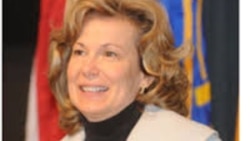HIV/AIDS remains one of the great challenges of our time. In the more than three decades since the disease was first identified, it has killed at least 36 million people. Back in the early 1980s, checking the disease and its spread through communities and countries around the world seemed impossible: back then, a diagnosis of AIDS was a death sentence; without the availability of effective treatment, those receiving an HIV-positive diagnosis lived an average of two years. And yet today, we are talking about achieving an AIDS-free generation in the foreseeable future.
To date, one of the most effective weapons against the disease has been the U.S. President's Emergency Plan for AIDS Relief, or PEPFAR. Launched in 2003 by then-President George W. Bush, then expanded and later rolled into the Global Health Initiative by President Barack Obama, PEPFAR combines prevention, treatment and care for people living with and affected by HIV and their families. It is the largest commitment in history by any nation to combat a single disease, and as of the end of September 2013 PEPFAR directly supports more than 6.7 million people globally on life-saving antiretroviral treatment.
Today, PEPFAR has a new leader. In early April, Dr. Deborah Birx was sworn in as the new Ambassador-at-Large and U.S. Global AIDS Coordinator to lead all U.S. Government international HIV/AIDS efforts.
Dr. Birx, an Army veteran who most recently served as the Director of the U.S. Centers for Disease Control and Prevention Division of Global HIV/AIDS, has received widespread recognition for her groundbreaking research on AIDS vaccines, her inexhaustible efforts to combating the AIDS epidemic, and her deep personal commitment to public service. She was awarded two prestigious U.S. Meritorious Service Medals for her contributions to the AIDS response.
“I am honored and humbled to lead PEPFAR into a brand new chapter to achieve an AIDS-free generation,” said Dr. Birx at her swearing-in ceremony.
The HIV/AIDS epidemic is in retreat in dozens of countries, and much of that success can be directly attributed to PEPFAR. But much more needs to be done.
“We have invested so much and we’ve come so far. We owe it to everyone who still needs our services, and most importantly to those that came before us and have died from this disease to finish the job,” said Ambassador Birx. “[As] Nelson Mandela . . . . always said, It always seems impossible until it’s done.
“And this can be done.”
To date, one of the most effective weapons against the disease has been the U.S. President's Emergency Plan for AIDS Relief, or PEPFAR. Launched in 2003 by then-President George W. Bush, then expanded and later rolled into the Global Health Initiative by President Barack Obama, PEPFAR combines prevention, treatment and care for people living with and affected by HIV and their families. It is the largest commitment in history by any nation to combat a single disease, and as of the end of September 2013 PEPFAR directly supports more than 6.7 million people globally on life-saving antiretroviral treatment.
Today, PEPFAR has a new leader. In early April, Dr. Deborah Birx was sworn in as the new Ambassador-at-Large and U.S. Global AIDS Coordinator to lead all U.S. Government international HIV/AIDS efforts.
Dr. Birx, an Army veteran who most recently served as the Director of the U.S. Centers for Disease Control and Prevention Division of Global HIV/AIDS, has received widespread recognition for her groundbreaking research on AIDS vaccines, her inexhaustible efforts to combating the AIDS epidemic, and her deep personal commitment to public service. She was awarded two prestigious U.S. Meritorious Service Medals for her contributions to the AIDS response.
“I am honored and humbled to lead PEPFAR into a brand new chapter to achieve an AIDS-free generation,” said Dr. Birx at her swearing-in ceremony.
The HIV/AIDS epidemic is in retreat in dozens of countries, and much of that success can be directly attributed to PEPFAR. But much more needs to be done.
“We have invested so much and we’ve come so far. We owe it to everyone who still needs our services, and most importantly to those that came before us and have died from this disease to finish the job,” said Ambassador Birx. “[As] Nelson Mandela . . . . always said, It always seems impossible until it’s done.
“And this can be done.”






